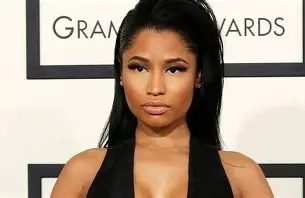

At a high-profile United Nations event, U.S. Ambassador to the UN Michael Waltz and international music star Nicki Minaj joined forces to draw global attention to what they describe as the Christian persecution in Nigeria. Their remarks, delivered during a panel titled “Combatting Religious Violence and the Killing of Christians in Nigeria,” have reignited conversations about religious freedom, security, and international responsibility.
In his powerful address, Ambassador Waltz didn’t mince words. He called the violence in Nigeria “genocide wearing the mask of chaos,” underscoring how deeply he believes the attacks are targeted, systematic, and not merely the byproduct of broader insecurity.
He referenced a number of horrifying incidents: churches being burned, pastors being beheaded, and entire villages waking up under gunfire because of their Christian faith.
Waltz also pointed to recent kidnappings, including the abduction of 25 schoolgirls, arguing that such attacks form part of a broader pattern of religiously motivated violence.
Citing data from Open Doors, an NGO that tracks Christian persecution, he claimed that “80% of the violence against Christians worldwide is occurring in Nigeria.” He called for “accountability” and urged the international community to not stay silent.
Nicki Minaj, known for her music and global reach, used her platform to deliver a deeply personal and impassioned plea. She said Christians in Nigeria are “being targeted, driven from their homes, and killed … simply because of how they pray.”
She carefully framed her message, insisting that speaking out is not about political partisanship or taking sides:
“This isn’t about taking sides. It’s about standing up in the face of injustice … protecting Christians in Nigeria is … about uniting humanity.” Yahoo
Minaj also thanked former U.S. President Donald Trump for prioritizing the issue and calling for “urgent action” to defend Christians, combat extremism, and stop religious violence.
Waltz’s remarks didn’t just appeal to moral conscience — he tied them to policy. He praised Trump’s previous interventions, including the creation of the Religious Liberty Commission, and argued that defending persecuted Christians is a “moral duty,” not mere politics.
However, the Nigerian government has strongly pushed back. According to international reporting, Nigeria has rejected the claims of large-scale religious persecution. Nigerian officials argue that the security crisis is rooted in terrorism and criminality, not a targeted campaign against Christians.